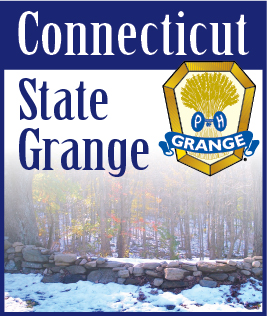| JUNE 10, 2010 -- On April 28th, National Master, Ed Luttrell, and National Grange Legislative Director, Leroy Watson, were invited to attend a national rural summit sponsored by the U.S. Senate Democratic Caucus in the Dirksen Senate Office Building in Washington, D.C. More than 150 farm and rural leaders from across the nation attended the five hour conference. The rural summit was organized and hosted by Senator Blanche Lincoln (AR), who serves as chair of the U.S. Senate Democratic Rural Caucus as well as chair of the U.S. Senate Committee on Agriculture.
Speakers included 11 current U.S. Senators, including Senate Majority Leader, Senator Harry Reid (NV). The Senators presented their views on critical issues facing rural communities across the nation and possible policy solution that the Democratic Rural Caucus was working on. Issues addressed by the speakers, which focused on major quality of life priority issues facing farming and rural communities, included: agriculture, telecommunications infrastructure, unemployment/jobs/rural development, health care reform, rural education reform, clean energy/biofuels, global climate change, rural transportation infrastructure, transportation infrastructure and financial reform. Plenty of time was built in to the agenda for vigorous questions and answer sessions from the audience after each panel made its presentations.
Former President Bill Clinton gave the final address at the conference. Former President Clinton focused his remarks about the prospects for successful strategies for U.S. rural development on a number of examples and lessons learned from his experiences after leaving office as Chairman of the William J. Clinton Foundation, a private, non-profit organization that he formed with his family to promote sustainable economic development strategies in countries around the world. Former President Clinton predicted that the future success of economic development strategies in rural America would depend on three factors.
First, rural America needs access to the same 21st century advanced telecommunications technologies, such as broadband, that not only urban and suburban communities have in the U.S. but that, increasingly, residents of partially developed and undeveloped nations have. He noted that during his travels he has witnessed strong commitments by national governments, even in most developing nations, to provide advanced telecommunications infrastructure to their citizens which allow them to be competitive in the global economy. The former president stated that the United States has failed to take advantage of the full potential of its rural citizens to compete in the world economy by not adopting a strong policy to assure that every American has access to broadband technologies.
Second, President Clinton emphasized that there is a growing need for highly skilled, good paying jobs in rural communities, which is not being met by the current educational infrastructure. He noted that we not only need to address the challenges of increasing high school graduation rates in rural communities, but that additional educational opportunities provided by community and technical colleges are critical to providing training for jobs, like health care, where there is currently a deficit of qualified individuals.
Third, the former president expressed his optimism about the prospects for rural America to provide the nation with nearly unlimited amounts of reliable, domestically produced, cost effective and environmentally sustainable sources of energy in the 21st century should appropriate policy decisions be enacted. These energy industries can provide a stable source of income to rural communities as rural resources provide the 21st century energy needs of our nation and can also be used as a way to attract other high paying industries, like high tech manufacturing, to locate near the sources of energy for their facilities.
One question is "How can representatives from the National Grange, with its strict traditions and rules related to non-partisanship, participate in this partisan event?" While the event was sponsored by the U.S. Senate Democratic Rural Caucus, it was clear from the invitation and supporting materials that summit participation was not directed or restricted to those affiliated with the Democratic Party. Nor was the event related to promoting any campaign activities or any specific candidates who are, or might be, running for office this fall. With the exception of Former President Bill Clinton, all of the speakers were incumbent office holders and only addressed the issues of policy and legislation. Likewise, all of the speakers maintained a civil and courteous tone related to their Republican Senate colleagues and avoided any temptations to engage in gratuitous partisan name calling or finger pointing. Therefore, because the Rural Summit was a policy issue-based event, and not an event promoting a party or candidates' agenda, it was appropriate for National Grange representatives to attend the Rural Summit.
|
